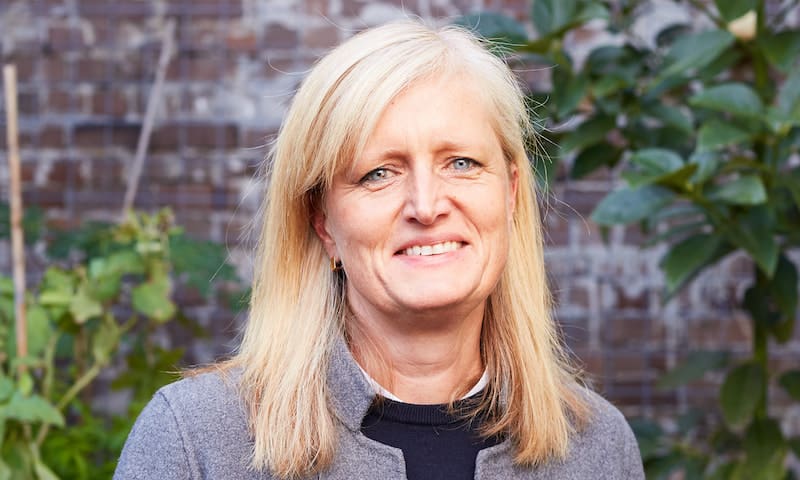
Expert tips on learning from supply chain stress
Last updated: Mar 15, 2024

Since the pandemic’s arrival, shifting lockdowns and border closures – among other challenges – have wreaked havoc on global supply and distribution chains. And small businesses are feeling the effects. In this series, we speak to experts in different industries to learn how they’ve managed the disruption, and what advice they have for others feeling the shipping squeeze.
The on-demand courier, Go People
Lengthy parcel delivery timeframes may be the most widespread side effect of the supply chain crisis, causing headaches for consumers and retailers of all sizes. Which is why startups like Go People are surging. In 2014, Wayne Wang launched Go People as Australia’s first (and to this day, only) same-day delivery service.
“We have drivers who use their own vehicles to get packages delivered from one place to another, meeting the demands of small businesses and consumers who want their goods delivered faster – a lot faster. By enabling things like live tracking and direct communication with drivers, we enhance the shipping experience. That means moving away from loose delivery timeframes to an accurate ETA,” explains Wayne. Below, he shares some insights to help small businesses manage shipping delays and other distribution obstacles.
- Leverage several shipping providers to cope with peak periods: There’s a huge demand and a shortage of workers when it comes to parcel delivery at the moment, which is one part of the supply chain problem. From an operational perspective, my advice is to use multiple delivery providers to offer your customers options. For example, if you know they’ll be shopping (and expecting deliveries) right up to 24 December, leverage a carrier like Go People to ensure same-day or faster deliveries.
- Know your shipping providers’ delivery cut-offs: Leading up to Christmas, big platforms like Australia Post and Sendle announce their Christmas delivery cut-off times, which – depending on where you’re sending parcels to and from – usually falls around mid-December. This means that any parcels sent after this date aren’t guaranteed to arrive before the 25th.
- Communicate often and early: Manage customer expectations by passing on your shipping providers’ delivery cut-off dates as early as possible. This could mean adding a pop-up to your website or sending a reminder eDM closer to the deadline. If you know your customers will want goods delivered right up until Christmas Day, consider looking to alternative carriers to make that happen.

The Australian-made furniture brand, Koskela
The arrival of COVID-19 highlighted all kinds of challenges for small business owners. As a result, Australians have rallied behind the community, buying from local makers and retailers where possible. One such business is furniture and homewares design brand Koskela. For over 20 years, Koskela has been working with Australian manufacturers and social impact partners to create ethical, thoughtfully made pieces for the home. “When we first started back in the 2000s, Australian-made wasn’t a popular concept. But over the years – and especially since the pandemic – people are more interested in understanding where their products come from and in turn, supporting local makers,” says Koskela’s CEO and founder, Sasha Titchkosky.
As an Australian owned and operated company, Koskela has mainly been unscathed by the supply chain crisis. However, Sasha has encountered a few hurdles along the way, which any aspiring or existing small business owner with a local focus can learn from.
- Understand that the cost of materials will fluctuate: The international supply chain crisis has led to a scarcity of some materials – like steel and timber – which have increased in value as a result. As a business owner, it’s a delicate balance between wearing some of these costs yourself and raising the price of your products to reflect the material expenses.
- Be upfront and honest: If you’re increasing prices to cope with the material shortage, it’s important to be transparent with your customers. In my experience, they’ll be understanding – especially those with whom you have a solid, trusting relationship with.
- Value your relationships with local stakeholders: Koskela has been working with our core manufacturing partners here in Australia for over two decades. Like us, they don’t mind doing things differently, whether that be trying new techniques or materials. This has enabled us to stay agile through supply chain challenges, and I think it’s an essential element of any business nowadays – being on the same wavelength as your internal stakeholders is a must.

As Wayne and Sasha’s experiences prove, the supply chain crisis is impacting different industries and small business operations in unique ways. And rather than wait for shipping ports, parcel carriers and manufacturers to return to normal, the best approach is to deal with what’s in your control right now. Whether that means diversifying your shipping providers or building trusted relationships with local stakeholders, there are plenty of solutions at hand.





